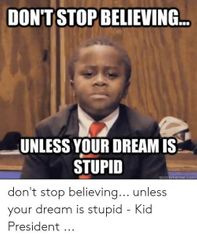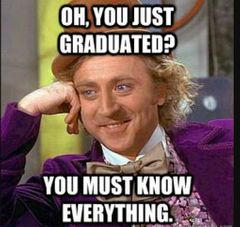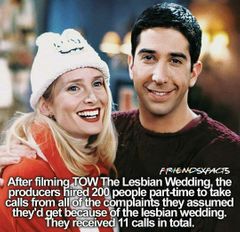- Barajar
ActivarDesactivar
- Alphabetizar
ActivarDesactivar
- Frente Primero
ActivarDesactivar
- Ambos lados
ActivarDesactivar
- Leer
ActivarDesactivar
Leyendo...
Cómo estudiar sus tarjetas
Teclas de Derecha/Izquierda: Navegar entre tarjetas.tecla derechatecla izquierda
Teclas Arriba/Abajo: Colvea la carta entre frente y dorso.tecla abajotecla arriba
Tecla H: Muestra pista (3er lado).tecla h
Tecla N: Lea el texto en voz.tecla n
![]()
Boton play
![]()
Boton play
![]()
57 Cartas en este set
- Frente
- Atrás
- 3er lado (pista)
|
warmer or more warm?
|

warmer! es monosilabo
|
|
|
such a y such
|
se usa el such con el a/an únicamente cuando la palabra que le sigue es un sustantivo singular y contable , es decir que tiene una forma plural de la palabra
eg:Welcome to the hotel California!!! such a lovely place ( existe places ) such old fashioned records ( es plural) such loud music ( musics no existe) such awful weather ( no existe weathers) |
|
|
afford ....( inf or ING?)
|

infinitive
|
|
|
cual es la excepción a like +ING?
|
cuando hablas sobre una elección,un hábito o algo que pensas que es una buena idea --> I'd quite like to visit an Asían country
I like to leave Home at 7 si that I get to work on time si decís algo que te gusta hacer es con ING -> I like going to the cinema |
|
|
would like +( to inf )ir ( ING)?
|
to inf!!
I would like to go to the cinema this evening |
|
|
diferencia entre remember/forget
+ ING +to infinitive |
con ING se usa como un" cuando"
eg :do you remember visiting Germany when you were 2? eg: I'll never forget meeting Paula for the first time en cambio con to inf sería como un "de" eg: did you remember to call Diane this morning? eg: oh I forgot to ask Donna about this evening! |
|
|
cuando se usa try +ING?
|
cuando tiras una idea para resolver un problema
eg: let's try opening a Window!! |
|
|
cuando se usa try to inf?
|

cuando estás haciendo un esfuerzo para lograrlo
eg: me trying to survive the quarentine |
|
|
go on...
to infinitive or ING? |
las dos !!! pero hay una mínima diferencia
continuar -> ING " after the break our teacher went on explaining the grammar to us" parar de hacer una actividad y empezar una nueva --> to inf " after explaining the grammar ,our teacher went on to tell ya what the homework was" |
|
|
stop ..
ING or to inf? |

los dos!! la diferencia
ing--> stop an Activity to inf--> cuando pausas lo que estabas haciendo en el medio de una actividad I was studying all evening but I stopped to take a nap |
|
|
prefer...
ING or to inf? |
**usamos prefer ING cuando se trata de algo que generalmente preferimos
" i prefer playing basketball rather than /to football **en cambio cuando es algo que es por la ocasión,por una vez usamos to inf "I prefer to play basketball rather than football this week" ojo no vayas a mandarle I don't prefer!!! es prefer not to!!!!!!! !!!!! |
|
|
would rather
inf ING? |

infinitive !
ojo no poner would rather" TO" kill el to no va |
|
|
had better
inf or ing |

significa deberias y sip,siempre va el had en pasado no have better
va con infinitivo |
|
|
usos del presente perfecto simple
|
-Acciones que continúan hasta ahora
"I've known him for about 10 years" - acciones terminadas en el pasado dónde lo importante NO ES CUANDO ( NO va "two years ago, last week") "We've seen that film before" o que nos importa el resultado actual "Julián has broken his arm" o para cosas que nunca habían sucedido " I have never eaten Italian food" palabras claves --> FOR,JUST ,ALREADY,SINCE,YET,NEVER... |
|
|
present perfect continuos usos
|
-situaciones temporarias que continúan hasta hoy " I' ve been working here for 6 months"
-situaciones temporarias que acaban de terminar " I've been standing here for hours" o que no termine aún NUNCA SE USA EL NEVER |
|
|
Reported speech
"this is the first time the train has been late " |
" we Pointed out that the train has never been late before"
|
|
|
reported speech
cómo se fórmula cuando tengo una wh question? ( where,when..) |
se cambia de lugar y se cambia de tiempo
"where IS the meeting on friday?" " he asked where the meeting WAS on friday" |
|
|
reported speech
why did they look at me in such a strange way? |
she wondered why they had looked at her in such a strange way
porque did es past simple así que corresponde past perfect simple |
|
|
reported speech
can pasa a ser ? |
could
we can't do any more they said they couldnt do any more |
|
|
reported speech
will |
would
"Ben Will be at the party" she said "she said (that) Ben would be at the party" |
|
|
reported speech
"have You finished?" |
usamos if or whether cuando es una pregunta de si o no
rta: sarah asked me if /whether I had finished |
|
|
después de un modal verb sigue...?
|

infinitivo
I might be able to get a better job after I finish university son modals verb: can,could,may,may,might,will,shall,should,ought to ,must,have to,would |
|
|
go to university /school o go to the university/school?
|
go to university /school
se puede decir go to the school si la persona está visitando si se puede decir be at university/school |
|
|
go to prison/hospital or go to the prison/ hospital ?
|
va sin el "the" , se admite solamente cuando la persona está visitando
|
|
|
the Maths o Maths?
|
"I love Maths"
para materias no va artí***** |
|
|
futuro: -en una predicción cuando estamos seguros que va a pasar ( por nuestro juicio o conocimiento)
que usamos? |
Will
"I think United Will win the Chqmpionship this year " "I believe she will be a great mother" |
|
|
futuro: que usamos cuando estamos haciendo una decisión al momento de hablar ?
|
"Oh I don't know ...Mmm ..I'll have an omelette please"
que NO ES LO MISMO QUE UN PLAN |
|
|
futuro :que uso para ofrecerse hacer una promesa o rechazar ?
|
Will
" I'll help You" " I'll return your book .." " No, I won't do it!" pero para RECHAZAR también es posible present continuos o be going to "no. I. -- am not going to do/am not doing. -- the homework for You" |
|
|
futuro: para una predicción en base a lo que podemos ver que usamos?
|
predicciones sobre el futuro con base en lo que VEO (NO con base en lo que pienso, o lo que creo, o lo que siento):
be going to ej:Si veo que unos niños están jugando unos cuchillos de forma muy peligrosa, puedo predecir que “se van a lastimar”: They are going to hurt themselves. o por ejemplo look out! You are going to drop the drinks! PD: solo sirve para este tipo de predicción, cuando mi predicción es porque estoy segura que va a pasar porque lo pienso así es Will y cuando no estoy segura uso might,could... |
|
|
futuro: para planes o intenciones uso?
|
Be going to
" I'm going to meet Helen tomorrow" "We're going to fly yo París and then stay in a great hotel" en cambio cuando hablo sobre algo fijado en un calendario uso present simple or coninous " our plane leaves/is leaving AT FOUR IN THE MORNING" |
|
|
conditionals: cual se usa para expresar verdades generales y hechos científicos?
|
Zero conditional : está formado por presente + presente (sea simple o continuo)
ejemplo "If you are making a cake you need to use fresh eggs" "If you heat water it boils" en este condicional se puede invertir y poner cualquier oración con el if |
|
|
conditionals :cual se usa para expresar una posibilidad real( en el presente futuro o en general?
|
first conditional : if+ present (simple or continuos) + Will +bare infinitive
"You will need a good dictionary if You are learning /You learn English " ojo : el if va con el término del presente nunca con el will, incluso si estamos hablando del futuro "we can stay in and try out My new DVS tomorrow ir it rains" (no Will rain por más que hable del futuro) en lugar del Will se puede reemplazar por can Should might may do.. |
|
|
conditionals: cual se us para cosas que son improbables, imposibles o hipoteticas en el presente o en el futuro?
|
"If I won the lottery I'd move to Hawaii"
No confundir con el third que es con cosas del pasado se fórmula como if+past ( simple or continuos)+ would+ bare inf " If you went to bed earlier you wouldn't feel tired all the time " se puede reemplazar el would por might,could .. es muy común usar el "if i were You" |
if I won the lottery....
|
|
dónde va el never ?
I would have managed to do it |
el never siempre va entre el auxiliar “have” y antes del pasado participio
I would have never managed to do it |
|
|
diferencia entre few y a few?
|
" a few”, implica un carácter positivo y quiere expresar poca cantidad pero suficiente;
“few”, en cambio tiene un carácter negativo y quiere decir poca cantidad e insuficiente. I have few Friends -> no muchos I have a few priends-> algunos OJO , ES ONLY A FEW |
|
|
diferencia entre little y a little?
|
ambos se utilizan con palabras incontables
a little -> To describe a small quantity of something Example: "He drank a little water" " let me give you a little advice" He is a little fat" ( es un poco gordo no es chiquito y gordo) little -> not much " they gave us little information" |
|
|
do you know who is that man?
cuál es el error? |
do you know who that man IS !
Es una indirect question cuando se hacen preguntas formales como " could You tell me where ..." "I would like to know" . se invierte el orden no necesariamente llevan el signo de pregunta al final "I would like to know where I can find a chemist's " |
|
|
Are you going to john's dinner party? =
Could you let me know... |
if/ wheather you're going to John's party ?( indirect question)
se utiliza if or wheather porque la "direct question"( es decir la original) es una pregunta de si o no |
|
|
después de would rather va....
|
**subject+PAST cuando estamos hablando sobre cosas que queremos o no queremos que alguien haga
I'd rather You CAME at six tomorrow She would rather (that) he WEREN'T so angry ( pertenece a las reglas de unreal past) **va con presente cuando es una preferencia de mi sobre mi o de otra persona She'd rather not see me I would rather (o I'd rather) stay with you. |
|
|
después del it's high time or about time va
|
It's (high) time + past expresses that something should be done and that it is already a bit late: " es hora de que "
It's high time I bought a new pair of jeans. It's about time this road was completed. They've been working on it for months. |
|
|
cómo expresamos una "idea negativa " usando think ,suppose ,believe ir imagine?
|
no sé puede usar el negativo despues de estas palabras ,si no que se usa el don't /doesn't + think/believe ,etc
=>No sé puede decir " I think I can't come on saturday " si no I DONT THINK I can come on saturday I don't suppose we'll hace the picnic because it's raining |
|
|
wishes: cómo expreso deseos sobre el presente o el futuro ?
|
usamos past simple or continous
**el libro dice presente pero se refiere más bien a cambiar "estados presentes " o posesiones ej -> I wish I WAS rich! I wish I didnt have so much homework I wish I had her phone number! (es un deseo sobre una posesión ** sobre el futuro I wish I could come with you next week |
|
|
wishes: sobre el pasado (arrepentimientos)
|
When we speak about things that DID NOT happen in the past, but which we wish were true:
**usamos wish+past perfect son arrepentimiento pero usando la palabra wish: eg:" I wish I had gone to the cinema with you last night." "I wish Manchester had beaten Barcelona." aclaro esto porque si usas regret es con ING "regret doing something" o si pasaron y quisiéramos que no fueran ciertas "I wish Manchester hadn't lost to Barcelona." |
|
|
wishes: sobre el comportamiento de alguien más que nos molesta
|
wish + would
I wish he wouldn't keep parking his car outside my house, it's inconsiderate. We can also use 'always + verb infinitive' for a similar meaning:-->I wish she wouldn't always shout. I'm not deaf. |
|
|
con que se puede reemplazar la palabra wish ? ( y usar la misma estructura)
|
>>if only
eg: If only he had listened to what his friends had been telling him. ojo si usamos hope ( que igual no es lo mismo pero bue) no sigue sus reglas >I hope we have a good time next saturday >I hope you enjoyed the party last night |
|
|
Gabriel and Emma say/tell that they were abducted by aliens.
|
SAY
Cuando sigue como complemento la persona a quien se le dice algo usamos tell y cuando no indicamos a quien se usa say ej --> I told him I was there I said I was there ( no aclaro a quien le dije) they told us she went home they said she went home |
|
|
suceed..... somebody have failed
|
suceed where sb have failed
it is up to us to succeed where others have for so long failed. |
|
|
cómo uso do para enfatizar?
|

sb +do +verb inf I don’t need this, but I do need that. I’m no chef, but I do know how to make an omelet |
|
|
after and before +verb ( ing or infinitive?)
|

ING
After thanking them I left. Before going to France, you should read the guide book. OJO SI NO VA DIRECTO DESPUES EL VERBO ESTO NO ES ASI She’ll pick you up before he comes here After he told me the story, he left my house. |
|
|
put somebody through
|
*connect someone by phone
the receptionst put me through to the wrong department by mistake *to make someone experience something very difficult or unpleasant ej : You have put your family through a lot recently. |
|
|
rather : que significa en la siguiente oración?
"He agreed, or rather he didn’t disagree" |
--> En uno de las tantas formas de usar rather tenemos está que sería "más bien /para ser más precisos "
"they don't use cash any more .Rather they either write cheques or pay by credit car " |
|
|
que significa rather en la siguiente oración
You’re not just wasting your time here, are you? No, I’m rather busy, in fact. |
sigifica " bastante " funciona como un adverbio
otro ejemplo They walked rather slowly. |
|
|
rather en la siguiente oración
I was rather hoping you’d forgotten about that. |
no tiene una palabra exacta pero es como "más bien esperaba que "
-->We can use rather to emphasise verbs. We use it most commonly with verbs such as enjoy, hope, like: He rather liked the idea of a well-paid job in Japan |
|
|
rather than uso?
|
-->"Rather than "usually occurs between two things which are being compared.
"He wanted to be an actor rather than a comedian." -->However, we can also use it at the beginning of a sentence> When we use rather than with a verb, we use the base form or (less commonly) the -ing form of a verb: "Rather than pay the taxi fare, he walked home. (or Rather than paying the taxi fare, he walked home)" |
|
|
unlike ?
significado |
a diferencia de
"Dan's actually very nice, unlike his father" |
|
|
i'm totally convinced that the airport is closed today
transformar: there .......Open today (chance) |
is no chance of the airport being open today
|
|
|
have a chance (to do /of doing) something?
|
someone has a/some/no chance of doing something
"...he has no chance of passing his test tomorrow" |